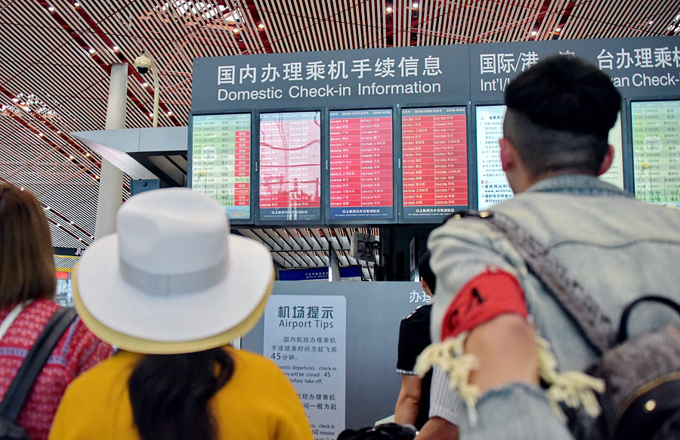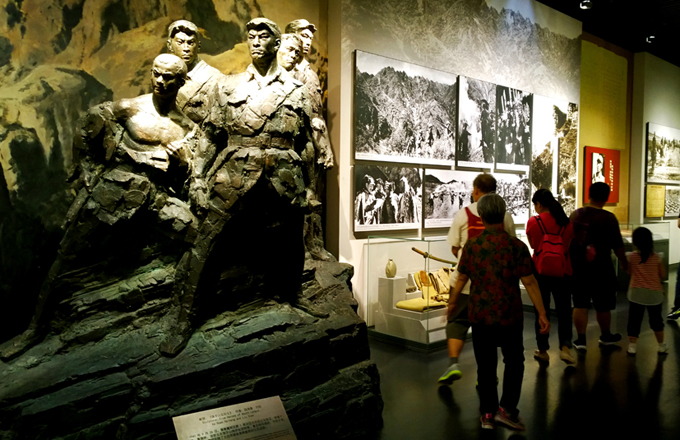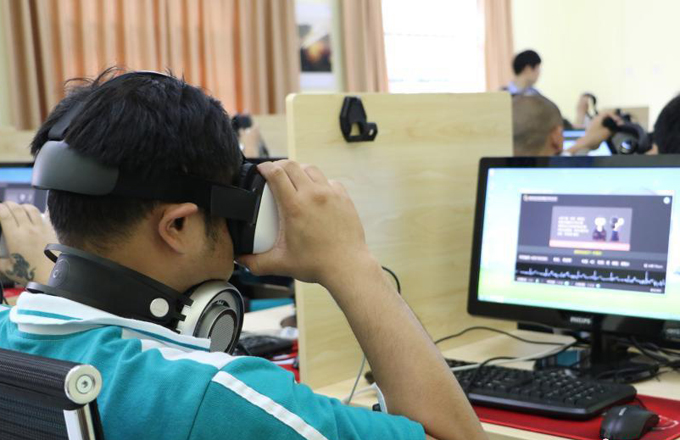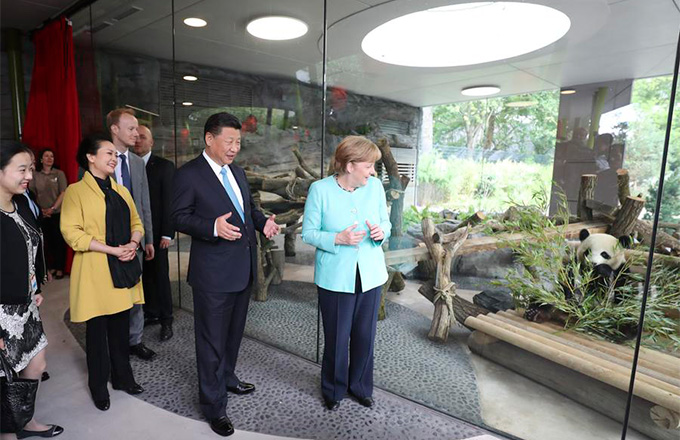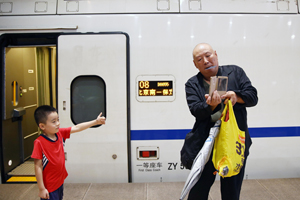Bidding on change
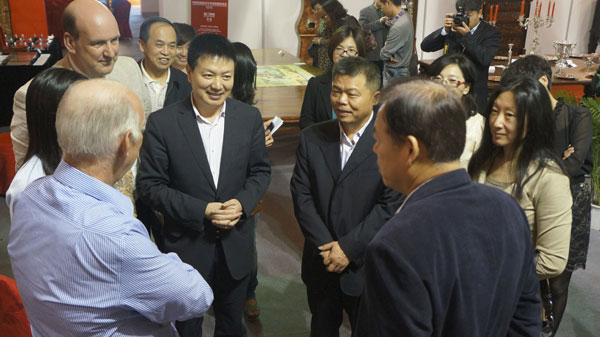 |
|
Gan Xuejun, Huachen Auction's chairman and president, talks with participants and visitors at the international auction in Xiamen. [Photo by Jules Quartly / China Daily] |
As for the 150 or so Chinese collectors and buyers who attended, there appeared to be a lot of curiosity to see if the experiment worked and would be continued.
Du Rongrong, a buyer from Beijing, says she intended to buy a few relatively inexpensive items and learn more about the market price of Western furniture.
"I believe the free port auction pattern will be replicated in the future because it is a neat way of sidestepping China's present laws," she says.
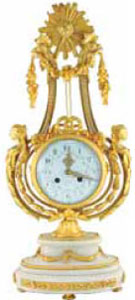 |
|
A Napoleon III gilt bronze and white marble mounted striking lyre clock (circa 1870). [Photo provided to China Daily] |
"While I hope China's auction market becomes more open, one of the biggest headaches for collectors is the tax issue, as buyers have to pay duties of up to 27 percent of the price."
He adds that Huachen's reputation and the involvement of Triple-A gave him confidence in the authenticity of the items, which is part of the reason the two partnered at the end of 2012.
The other principal mover behind this collaboration is Jiang Qiqi, CEO of the Beijing-based Epai Live, which she describes as the "Wechat and Taobao of the auction world".
Jiang says the Chinese market has three principal problems - transparency, custom duties and taxes, and trust among buyers.
"What we want to import from Triple-A is the credibility factor and to further build Epai Live into a bilingual system on which foreigners have the confidence to buy and to ensure that payments really are made," Jiang says.
"The world is open to China, but what we see here (in Xiamen) is that China is open to the world. It has to be at the same level."
By following the tried-and-tested formula of partnering with foreign organizations, Huachen and Epai Live intend to percolate foreign practices and expertise.
She says the "buyer beware" principal of Chinese auction houses, which are merely required to say they won't take responsibility for the quality of an item, "has to be changed".
Gan adds: "Some players like to take advantage of the legal loophole, but they don't understand cheating means committing suicide. A fake product will ruin a company's reputation, which should be built to last for years.
"So, we need to learn from our Western counterparts - not about growing into big companies but about playing the game with credibility."
Additional evidence of the macroclimate for domestic auctions' transformation is that the two giants of the international industry are dipping their toes into the market.
Sotheby's has teamed up with Gehua Art Company to take advantage of the planned Beijing free port, while Christie's is set to become the first foreign auction company permitted to operate independently and will hold its first Chinese mainland sale in the autumn.
Gan welcomes them with open arms, saying their entry shows how strong the China auction market is.
"Second, they will introduce professionalism, codes of practice and credit. Third, their presence is a fresh challenge for the country's auctioneers."
He says that, as the first sale by foreigners in China, the Xiamen auction is a first step on a long road.
Naturally, he also believes a Chinese auctioneer will likely become a major player in the international industry.
As for Huachen, he insists: "The ambition is not about building the biggest company but about making it the last one standing."
- Imperial cabinet sets record at spring auction
- Auction canceled for three controversial letters
- Writer crying foul over auction of private letters
- Literary couple's letters off auction amid protest
- Late writer's widow protests auction of letters
- Christie's contemporary sale is biggest auction in history




